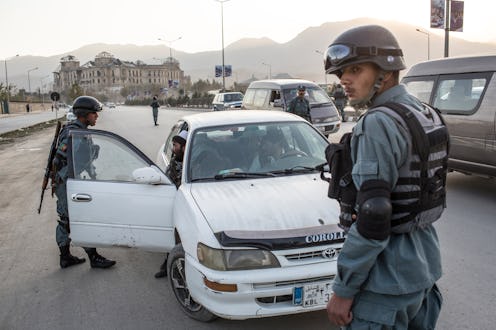News
Two AP Journalists Shot In Afghanistan
In the latest string of deadly violence in Afghanistan, two AP journalists were shot by a policeman in the province of Khost Friday. An officer opening fire on their car killed award-winning Associated Press photographer Anja Niedringhaus, and wounded reporter Kathy Gannon. The two were traveling with a convoy of election workers protected by Afghan security forces when the incident occurred.
While the group was waiting to move, a unit commander named Naqibullah walked up to the car yelling, "Allahu Akbar," or "God is Great," and fired shots into the backseat with an AK-47. The gunman surrendered soon after to police on scene and was arrested. Niedringhaus died instantly, according to an AP freelancer who witnessed the attack, while Gannon, who was shot twice, underwent surgery and is in stable condition.
The shooting coincided with the eve of Afghanistan's elections, which the Taliban has vowed to disrupt. Officials are still investigating the shooter's motive, but there was no immediate claim of responsibility. The weeks leading up to the elections have been hit with strikes from the group: on Wednesday, a suicide bomber killed six Afghan police officers at the entrance gate to the Interior Ministry in Kabul, and earlier in the week, the Taliban killed a candidate and a group of his supporters.
Friday's incident is the most recent of a series of attacks on journalists in Afghanistan. In March, Swedish-British journalist Nils Horner, was killed on a Kabul street by unknown gunmen. An extremist group claiming ties to the Taliban says they were responsible for his death. Later in the month, prominent Afghan journalist Sardar Ahmad and his family were among the nine dead after gunmen opened fire in a luxury hotel in Kabul.
In a letter to his staff, AP chief executive Gary Pruitt said:
As conflict spreads throughout regions of the world, journalism has become more dangerous. Where once reporters and photographers were seen as the impartial eyes and ears of crucial information, today they are often targets.
